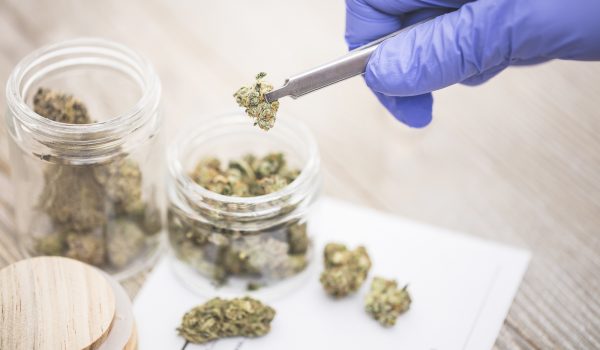Ohio’s medical marijuana program is almost one year old. Patient numbers have increased since January 2019, and more licensees have become operational. Not to be outdone, federal government representatives have been busy as well, trying to draft legislation that would de-schedule marijuana and set in motion the legislative process to affirmatively allow states to create their own marijuana programs. These recent developments at the state and federal level are explored below.
Ohio Update: Medical Marijuana Law
While only 584 physicians have received certificates to recommend medical marijuana out of a possible 46,000, the number of registered patients has seen a steady increase from 53,000 patients in August to nearly 70,000 as of October 31, 2019. Of those nearly 70,000 patients, around 46,000 have gone to a dispensary to make a purchase of medical marijuana. These numbers will likely continue to increase as more product becomes available and the public continues to receive education on the program. A representative from the Ohio Board of Pharmacy estimated that around 200,000 patients would be registered once all licensees (cultivators, processors, laboratories, dispensaries) were completely operational. The chart below provides the status of each of these licensees as of November 2019.
| Licensee | Number of licensees operational out of total number of licensees with a provisional license |
| Cultivators (level I and level II) | 18/32 |
| Processors | 12/41 |
| Dispensaries | 45/56 |
| Laboratories | 3/5 |
Ohio also issued a recall for a product that was processed by a processor for using a “non-compliant process.” This recall, issued on November 15, 2019, instructed anyone who purchased the products to stop using it and return it to the dispensary where it was purchased. The state said that any returned product would not count toward a patient’s 90-day possession limit. Despite the product recall, there had been no reports of an adverse reaction experienced by any patients.
However, those in the medical marijuana industry will want to continue to monitor their product and its compliance with regulations to avoid the potential for product liability claims. As of November 17, 2019, dispensaries have raked in over $43,000,000 in product sales through the sale of a total of 5,175 pounds of plant material. While there is word that prices are decreasing at the dispensaries, many agree there is still a way to go to make the product affordable for more patients.
Ohio also issued a ban on the vape-oil ingredient vitamin E acetate on November 8, 2019, after federal health officials linked the additive to cases of vaping-related lung injury. According to a news report, vitamin E acetate has been used as a cutting agent in vape oils containing THC and nicotine. The Centers for Disease Control and Prevention linked vape oils containing vitamin E acetate with lung illnesses seen in more than 2,000 people nationwide, including 52 in Ohio. The ban was preemptive since none of Ohio’s processors used vitamin E acetate. All Ohio vape products must now be tested for vitamin E acetate.
Federal Marijuana Law Developments
The House Judiciary Committee approved a bill on November 20, 2019, that would decriminalize marijuana at the federal level. The “Marijuana Opportunity Reinvestment and Expungement Act of 2019,” or MORE Act, passed 24-10 within the committee. The MORE Act would:
- Remove marijuana from the list of federally controlled substances;
- Allow states to set their own marijuana policy;
- Require federal courts to expunge prior convictions for marijuana offenses; and
- Add a 5% tax on marijuana products to establish a trust fund for programs designed to help people disproportionately impacted by the “war on drugs,” including job training and treatment for substance abuse.
The MORE Act now goes to the House of Representatives for a vote. If it passes, it would then go to the Senate for a vote. This development was big news, and you can subscribe to our Health Law Matters blog for updates as to whether this monumental legislation makes it from the House to the Senate.
Medical marijuana laws, whether at the state or federal level, are constantly changing. Whether you are a physician, patient, or a business in the medical cannabis space, it is important to stay apprised of what is going on legally to make sure you are always in compliance with legal requirements.

